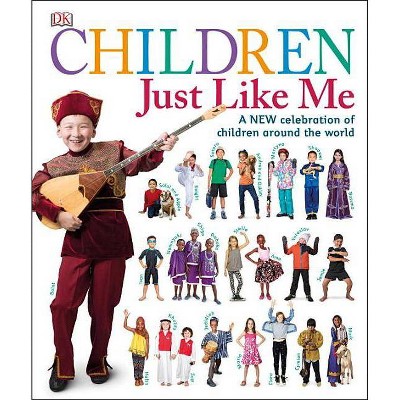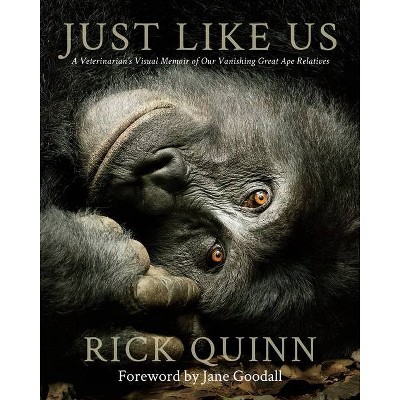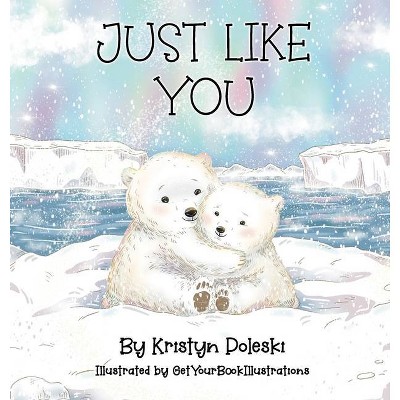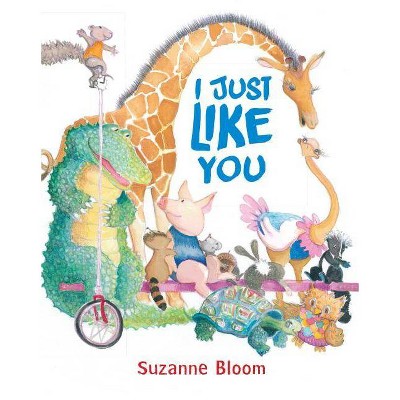Just Like Us - by Thomas Borstelmann (Hardcover)
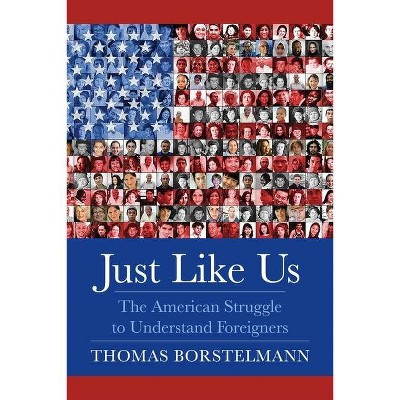
Similar Products
Products of same category from the store
AllProduct info
<p/><br></br><p><b> About the Book </b></p></br></br><i>Just Like Us</i> is a pathbreaking exploration of what foreignness has meant across American history. Thomas Borstelmann traces American ambivalence about non-Americans, identifying a paradoxical perception of foreigners as suspiciously different yet fundamentally sharing American values at heart beneath the layers of culture.<p/><br></br><p><b> Book Synopsis </b></p></br></br>Americans have long considered themselves a people set apart, but American exceptionalism is built on a set of tacit beliefs about other cultures. From the founding exclusion of indigenous peoples and enslaved Africans to the uneasy welcome of waves of immigrants, from republican disavowals of colonialism to Cold War proclamations of freedom, Americans' ideas of their differences from others have shaped the modern world--and how Americans have viewed foreigners is deeply revealing of their assumptions about themselves. <p/><i>Just Like Us</i> is a pathbreaking exploration of what foreignness has meant across American history. Thomas Borstelmann traces American ambivalence about non-Americans, identifying a paradoxical perception of foreigners as suspiciously different yet fundamentally sharing American values beneath the layers of culture. Considering race and religion, notions of the American way of life, attitudes toward immigrants, competition with communism, Americans abroad, and the subversive power of American culture, he offers a surprisingly optimistic account of the acceptance of difference. Borstelmann contends that increasing contact with peoples around the globe during the Cold War encouraged mainstream society to grow steadily more inclusive. In a time of resurgent nativism and xenophobia, <i>Just Like Us</i> provides a reflective, urgent examination of how Americans have conceived of foreignness and their own exceptionalism throughout the nation's history.<p/><br></br><p><b> Review Quotes </b></p></br></br><br>From one of our finest historians comes this smart, incisive overview of how Americans have viewed other peoples. With wit and insight, Borstelmann shows that Americans' interaction with foreigners has irrevocably changed them both. The result is a completely fresh perspective on how the United States has engaged with the wider world, on everything from war and foreign policy to immigration and culture. A must-read.--Andrew Preston, author of <i>Sword of the Spirit, Shield of Faith: Religion in American War and Diplomacy</i><br><br>In this moment of great peril for migrants and refugees in the United States, Borstelmann vividly recovers a necessary history of the place of the "foreigner" in the American imagination. Tracing the ways in which Americans came to understand the world around them in their own exceptionalist image, <i>Just Like Us</i> brilliantly illustrates how growing sentiments of inclusion and equity emerged against persisting racism and xenophobic fears of subversion to shape the American past and present.--Mark Philip Bradley, author of <i>The World Reimagined: Americans and Human Rights in the Twentieth Century</i><br><br>This is a fantastic and timely book, written by one of the nation's most distinguished scholars of American foreign relations, race, and world history. It is original, lively, beautifully written, accessible, and filled with profound insights that will contribute to the scholarly conversation on American foreign relations and world history.--Elaine Tyler May, author of <i>Homeward Bound: American Families in the Cold War Era</i><br><br>This is one of those books that sticks with you. Borstelmann asks a big question--about U.S. attitudes toward foreigners--and has an important argument to make. What is more, <i>Just Like Us</i> sparkles with telling details and unexpected connections. It is, plainly put, masterful.--Daniel Immerwahr, author of <i>How to Hide an Empire: A History of the Greater United States</i><br><p/><br></br><p><b> About the Author </b></p></br></br>Thomas Borstelmann is the Elwood N. and Katherine Thompson Professor of Modern World History at the University of Nebraska-Lincoln and a past president of the Society for Historians of American Foreign Relations. His previous books include <i>The 1970s: A New Global History from Civil Rights to Economic Inequality</i> (2012); <i>The Cold War and the Color Line: American Race Relations in the Global Arena</i> (2001); and <i>Apartheid's Reluctant Uncle: The United States and Southern Africa in the Early Cold War</i> (1993).
Price History
Cheapest price in the interval: 32.49 on October 22, 2021
Most expensive price in the interval: 32.49 on November 8, 2021
Price Archive shows prices from various stores, lets you see history and find the cheapest. There is no actual sale on the website. For all support, inquiry and suggestion messages communication@pricearchive.us


